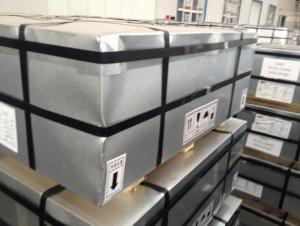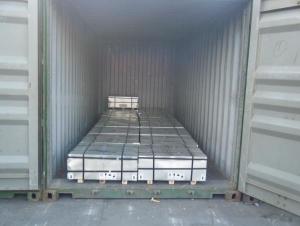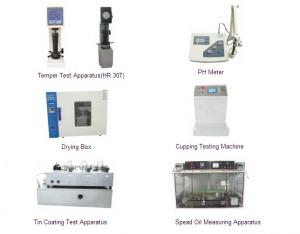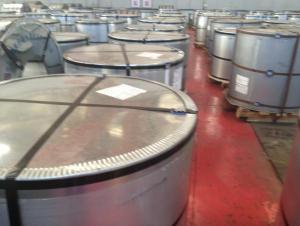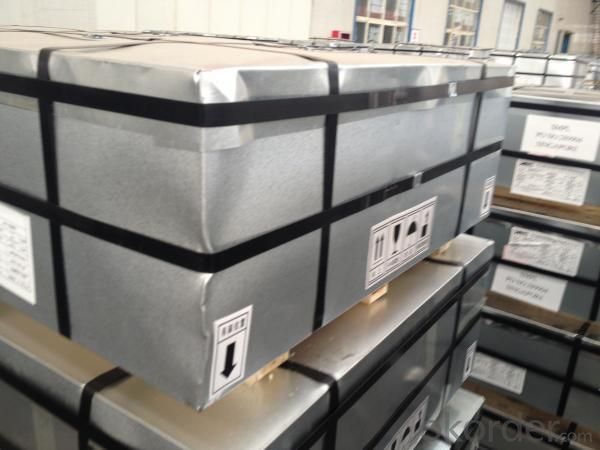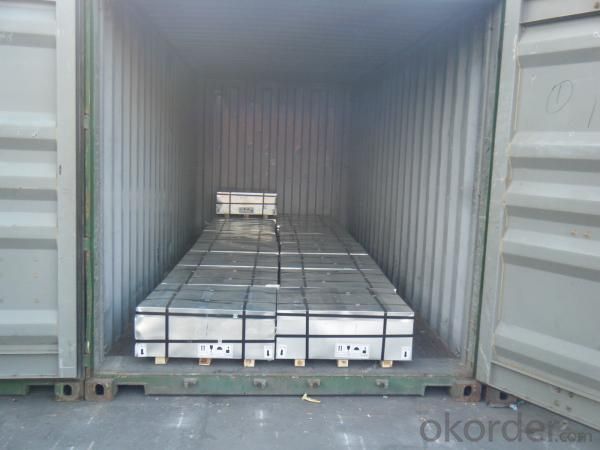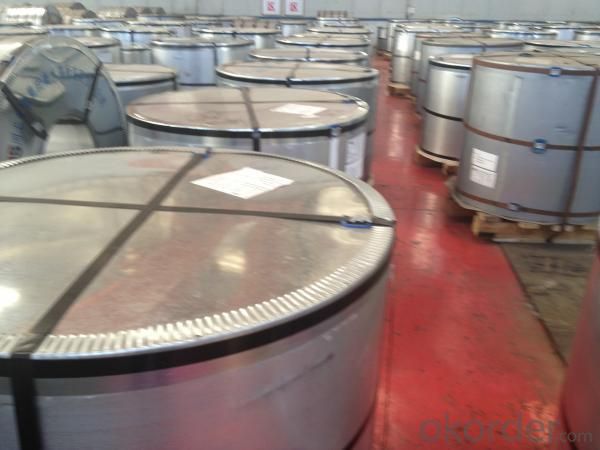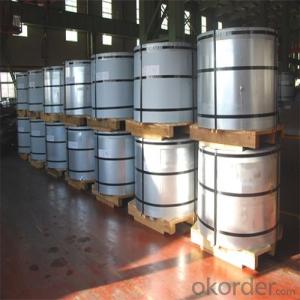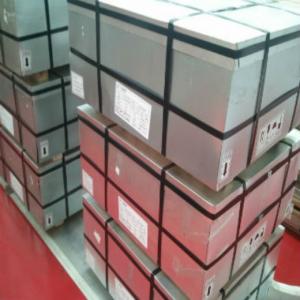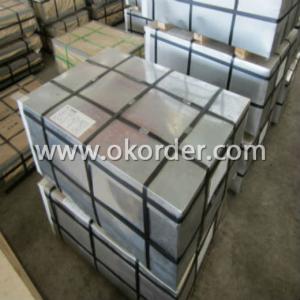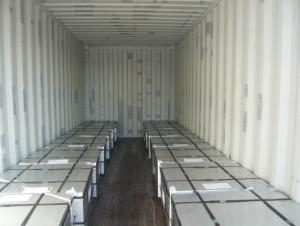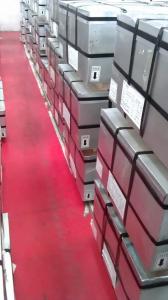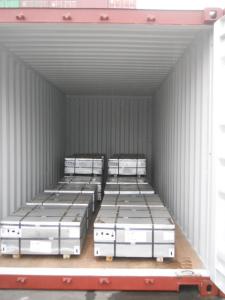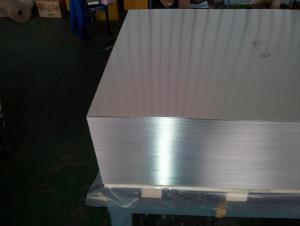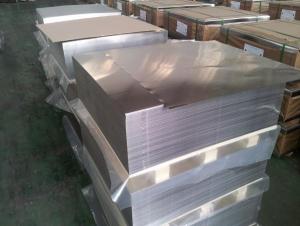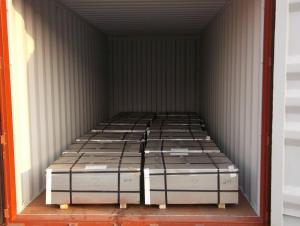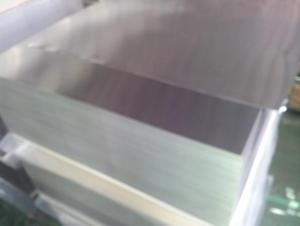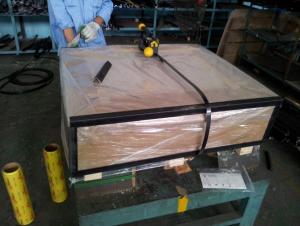Tinplate For Edible Oil Can-CHBA
- Loading Port:
- China Main Port
- Payment Terms:
- TT or L/C
- Min Order Qty:
- 20 Tons~25 Tons m.t.
- Supply Capability:
- 40000 MT Per Month m.t./month
OKorder Service Pledge
OKorder Financial Service
You Might Also Like
General information of Tinplate For Edible Oil Can
Steel Type | MR |
Temper (BA&CA) | T1~T5, DR8 |
Coating | 2.8~8.4g/m2 |
Thickness & Tolerance | 0.15~0.5mm (Tolerance:±0.01mm) |
Width & Tolerance | 600~1000 mm(Tolerance: +2/-0mm) |
I.D | 508 MM |
Coil Weight | 3~10 MT |
Passivation | 311 |
Oiling | DOS |
Surface Finish | Bright ,Stone ,Silver ,Matte |
Min Order | 25 Tons for 1 20 feet FCL |
Package | Seaworthy Export Standard Wooden Pallet |
Standard Available | GB/T2520-2000, JIS G3303, ASTM A623, BS EN10202 |
Lead Time | 35 days after receiving buyer's original L/C or Prepayment |
Special specifications are available on customers' requirements. | |
Technical data of Tinplate For Edible Oil Can
Chemical Composition(%) | Mechanical Property |
C:0.02~0.04 | Yield Strength: (Mpa):280~320 |
Si:0.01~0.03 | TensileStrength: (Mpa):340~390 |
Mn:0.18~0.22 | Elongation:20%~30% |
P:0.014~0.016 | ------------- |
S:0.006~0.009 |
Application of Tinplate For Edible Oil Can
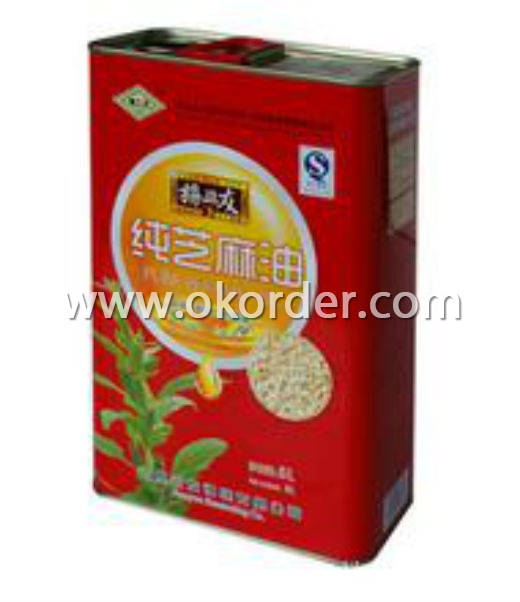
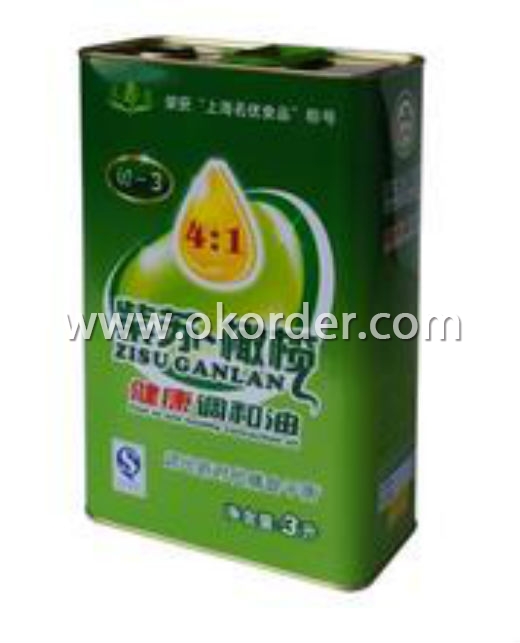
Tinplate is widely used for making all types of containers such as artistic cans, tea cans, painting cans,
chemical package cans and metal printing etc. Its applications are not limited to containers; recently,
tinplate has also been used for making electrical machinery parts and many other products.
Equipment and Facility of Tinplate
Tin Coating Line of Tinplate For Edible Oil Can
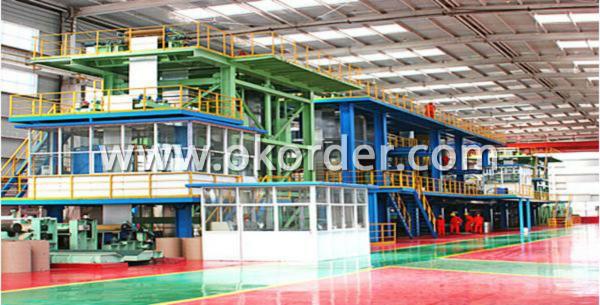
Cold Rolling Mill Batch Annealing Furnace
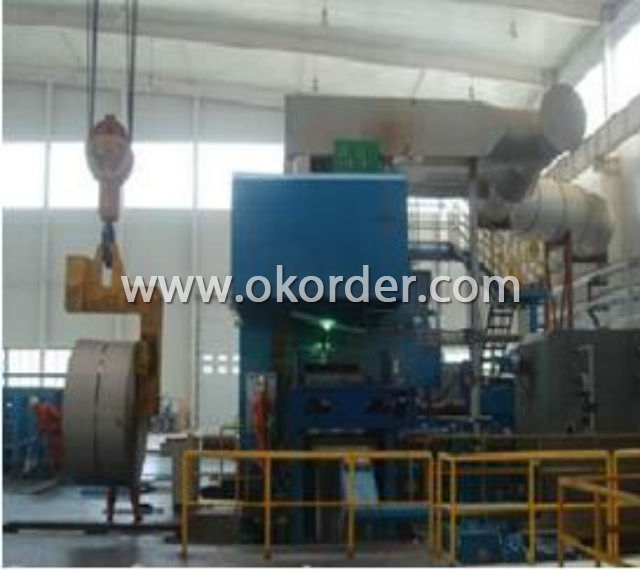
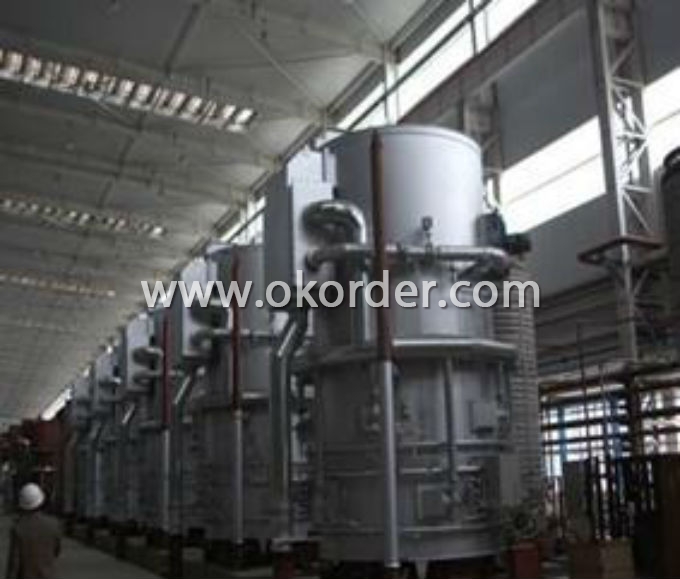
Cutting Line Stock Area
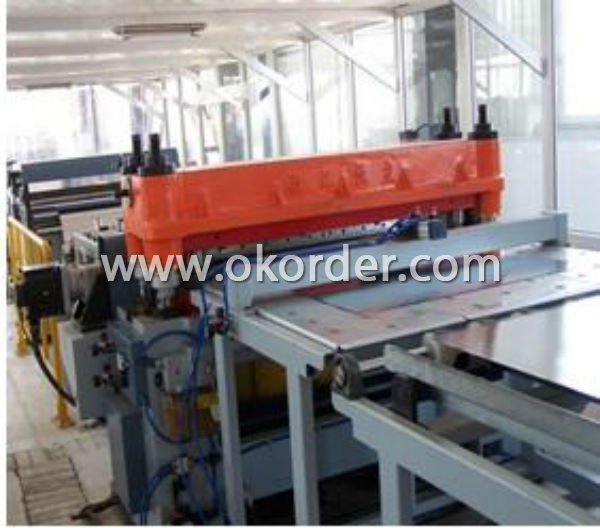
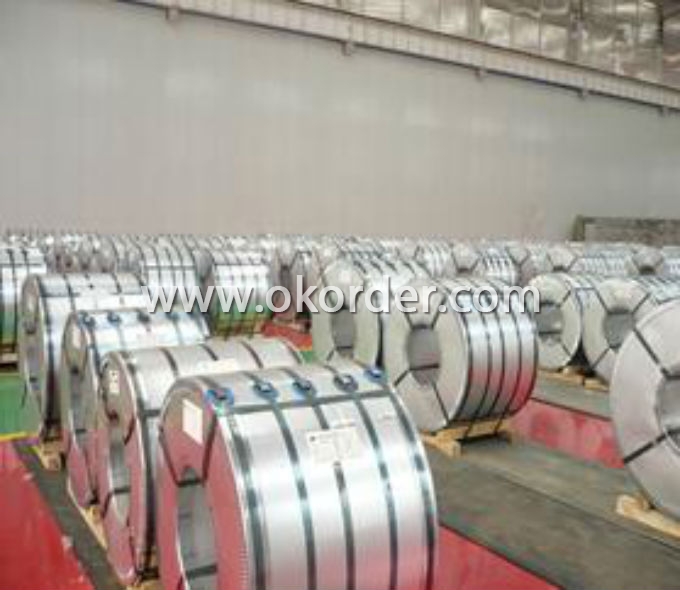
Quantity Control System of Tinplate
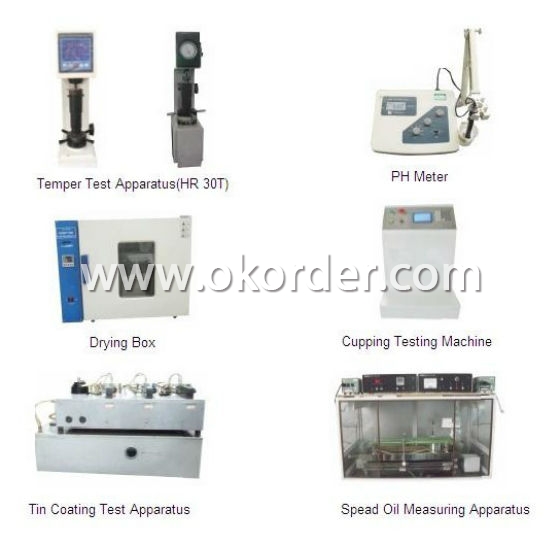
- Q: What are the challenges in manufacturing tinplate?
- Some of the challenges in manufacturing tinplate include ensuring the uniformity of tin coating on the steel base, preventing corrosion during storage and transportation, maintaining the dimensional accuracy of the tinplate sheets, and addressing environmental concerns related to the disposal of tin and tin-containing wastewater. Additionally, meeting the specific quality requirements of different industries and managing the cost of production can also be challenging in tinplate manufacturing.
- Q: How does tinplate packaging contribute to product protection against leakage?
- Tinplate packaging contributes to product protection against leakage primarily due to its durable and corrosion-resistant properties. The tin coating on the steel substrate prevents any contact between the product and the surrounding environment, minimizing the risk of leakage. Additionally, tinplate packaging is often manufactured using advanced sealing techniques, ensuring airtight and leak-proof closures. Overall, the robust nature of tinplate packaging serves as a reliable barrier, safeguarding the product from potential leakage and preserving its quality.
- Q: How does tinplate compare to plastic in terms of durability?
- Tinplate generally offers better durability compared to plastic as it is a rigid and strong material. It can withstand higher levels of impact, pressure, and temperature variations without cracking or breaking. Plastic, on the other hand, is more prone to damage, especially in extreme conditions, and can easily break or degrade over time.
- Q: What are the applications of tinplate?
- Tinplate has various applications, primarily in the packaging industry. It is commonly used to make food and beverage cans, as it provides a protective barrier against moisture, oxygen, and light. Tinplate is also used for making aerosol cans, paint cans, and containers for cosmetics and pharmaceutical products. Additionally, it is utilized in the manufacturing of metal caps and closures for bottles and jars.
- Q: How does tinplate contribute to the protection of textile products?
- Tinplate contributes to the protection of textile products by providing a durable and corrosion-resistant packaging material. It acts as a barrier against moisture, oxygen, and other environmental factors that could damage the textiles. Additionally, tinplate containers can be sealed tightly, ensuring that the textile products remain intact and free from contamination during storage and transportation.
- Q: Can tinplate be used for packaging non-food items?
- Yes, tinplate can be used for packaging non-food items. Tinplate is a versatile material that offers excellent durability, corrosion resistance, and tamper-proof properties. It is commonly used for packaging various non-food products such as cosmetics, pharmaceuticals, aerosol cans, and household goods.
- Q: Can tinplate be used for household appliances?
- Yes, tinplate can be used for household appliances. It is a commonly used material due to its durability, corrosion resistance, and ability to be easily formed into various shapes. Tinplate provides a protective layer, making it suitable for applications such as cans, containers, kitchen utensils, and other household appliances.
- Q: Can tinplate be used for packaging chemicals?
- Yes, tinplate can be used for packaging chemicals. Tinplate is a type of steel coated with a thin layer of tin, which provides excellent resistance to corrosion and is known for its durability and stability. These properties make it suitable for storing and transporting various chemicals safely. Additionally, tinplate can be manufactured into various shapes and sizes, making it a versatile option for chemical packaging.
- Q: Can tinplate packaging be used for frozen or refrigerated goods?
- Yes, tinplate packaging can be used for frozen or refrigerated goods. It provides a durable and protective barrier against moisture, light, and oxygen, helping to preserve the quality and freshness of the products. Additionally, tinplate containers can withstand low temperatures without compromising their integrity, making them suitable for the storage and transportation of frozen or refrigerated goods.
- Q: What are the different surface finishes available for tinplate?
- The different surface finishes available for tinplate include bright, stone, matte, and silver.
1. Manufacturer Overview
| Location | Hebei,China |
| Year Established | 2009 |
| Annual Output Value | Above US$100 Million |
| Main Markets | North America;South America; Eastern Europe Southeast Asia; Africa; Mid East Eastern Asia; Western Europe; Central America Northern Europe; Southern Europe; Domestic Market |
| Company Certifications | HACCP;ISO 9001:2008;ISO 14001:2004 |
2. Manufacturer Certificates
| a) Certification Name | |
| Range | |
| Reference | |
| Validity Period |
3. Manufacturer Capability
| a) Trade Capacity | |
| Nearest Port | Tianjin |
| Export Percentage | 11% - 20% |
| No.of Employees in Trade Department | 6-10 People |
| Language Spoken: | English;Chinese |
| b) Factory Information | |
| Factory Size: | Above 270,000 square meters |
| No. of Production Lines | Above 12 |
| Contract Manufacturing | OEM Service Offered |
| Product Price Range | High;Average |
Send your message to us
Tinplate For Edible Oil Can-CHBA
- Loading Port:
- China Main Port
- Payment Terms:
- TT or L/C
- Min Order Qty:
- 20 Tons~25 Tons m.t.
- Supply Capability:
- 40000 MT Per Month m.t./month
OKorder Service Pledge
OKorder Financial Service
Similar products
Hot products
Hot Searches
Related keywords

